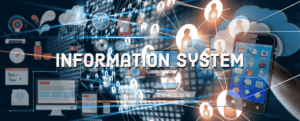Remote prenatal care, often called teleprenatal care or virtual pregnancy care, is a modern healthcare approach that leverages digital technology to provide expectant mothers with comprehensive prenatal care and support. In an era marked by technological advancements and the ongoing need for accessible and convenient healthcare services, this comprehensive exploration delves into remote prenatal care, revealing its significance, applications, and transformative potential for enhancing the pregnancy journey for both mothers and healthcare providers.
The Significance of Remote Prenatal Care
Remote prenatal care represents a pivotal shift in how pregnancy healthcare is delivered and experienced. It addresses numerous challenges in traditional prenatal care, such as accessibility, convenience, and continuity of care. The core significance of remote prenatal care lies in its ability to empower expectant mothers with greater control over their pregnancy journey while ensuring they receive timely and personalized healthcare support.
Accessibility and Convenience
One of the primary advantages of remote prenatal care is its ability to overcome geographical barriers. Expectant mothers in rural or underserved areas can access high-quality prenatal care without frequent and often burdensome in-person visits—increased accessibility and convenience result in more equitable healthcare access for pregnant individuals.
Personalized Care and Continuity
Remote prenatal care allows for a personalized approach to pregnancy healthcare. Expectant mothers can receive tailored guidance, educational resources, and support based on their unique needs and preferences. Additionally, the continuity of care is improved as remote prenatal care ensures regular check-ins and monitoring throughout the pregnancy.
Reducing Healthcare Disparities
Remote prenatal care can potentially reduce healthcare disparities, particularly among underserved populations. It bridges gaps in healthcare access, making it possible for individuals who face barriers to receive consistent and high-quality prenatal care, ultimately improving maternal and infant health outcomes.
Techniques in Remote Prenatal Care
The capabilities of remote prenatal care are made possible through various digital techniques and technologies that enable virtual monitoring, communication, and support.
Telemedicine and Video Conferencing
Telemedicine platforms and video conferencing tools are central to remote prenatal care. These technologies facilitate virtual appointments between expectant mothers and healthcare providers, allowing for real-time discussions, examinations, and consultations.
Wearable Devices and Remote Monitoring
Wearable devices, such as smartwatches and connected fetal monitors, enable remote monitoring of vital signs and fetal health. Expectant mothers can track key metrics and share data with healthcare providers, ensuring proactive and informed care.
Mobile Applications and Educational Resources
Mobile applications offer many educational resources, from nutrition guides to pregnancy tracking tools. These apps empower expectant mothers with knowledge and self-care strategies, fostering engagement and empowerment throughout their pregnancy.
Applications of Remote Prenatal Care
Remote prenatal care has many applications across various aspects of pregnancy healthcare, including monitoring, education, and emotional support.
Prenatal Check-Ups and Monitoring
Virtual prenatal check-ups allow healthcare providers to assess maternal and fetal health, conduct ultrasounds, and review vital signs remotely. This approach minimizes the need for frequent in-person visits, particularly for low-risk pregnancies.
Education and Self-Care
Mobile apps and online resources provide expectant mothers with educational content on nutrition, exercise, and childbirth preparation. These resources empower individuals to participate in prenatal care and make informed decisions actively.
Emotional Support and Community
Remote prenatal care platforms often include community features where expectant mothers can connect with others experiencing similar journeys. This sense of community and emotional support is invaluable during pregnancy, fostering a sense of belonging and shared experiences.
Challenges and Ethical Considerations
The adoption of remote prenatal care introduces a set of challenges and ethical considerations that demand careful attention and innovative solutions.
Digital Divide and Access
The digital divide, particularly in rural or low-income communities, can pose a barrier to accessing remote prenatal care. Efforts must be made to ensure that all expectant mothers have access to the necessary technology and internet connectivity. Initiatives to reduce this divide, such as providing subsidized devices and improving internet infrastructure, are essential to making remote prenatal care accessible to all.
Data Privacy and Security
Using digital platforms in remote prenatal care means that sensitive health data, including personal and medical information, is being transmitted and stored electronically. To maintain trust in the healthcare system and safeguard patient information, robust data privacy and security measures must be implemented. It includes encryption, secure authentication methods, and compliance with data protection regulations.
Equitable Care and Inclusivity
Remote prenatal care platforms must be designed with inclusivity in mind to ensure that all expectant mothers can benefit. It includes considerations for individuals with disabilities and those facing language or cultural barriers. Additionally, healthcare providers must be trained to offer culturally competent and inclusive care through remote channels.
The Future of Remote Prenatal Care
Remote prenatal care is poised to continue shaping the future of pregnancy healthcare with innovative technologies and approaches that enhance accessibility, personalization, and maternal well-being.
Artificial Intelligence and Predictive Care
Integrating artificial intelligence (AI) and predictive analytics holds great promise for the future of remote prenatal care. AI algorithms can analyze data from wearable devices, such as fetal heart rate monitors and maternal health trackers, to detect patterns and predict potential health issues. It allows for proactive interventions, personalized care plans, and early identification of risks, ultimately improving maternal and fetal outcomes.
Expanded Access to Specialist Care
Remote prenatal care can facilitate access to specialist care, particularly for high-risk pregnancies. Expectant mothers can consult with maternal-fetal medicine specialists and other experts without extensive travel. It ensures that timely and specialized care is available to those who need it, reducing the burden of travel on pregnant individuals.
Postpartum Care and Beyond
Remote care models have the potential to extend beyond pregnancy and childbirth, offering postpartum support and maternal health monitoring. The postpartum period is critical for maternal and infant well-being, and remote care can ensure that maternal health remains a priority beyond childbirth. It includes monitoring postpartum recovery, mental health, and the transition to parenthood.
Conclusion
Remote prenatal care is not just a technological advancement but a transformative approach that enhances healthcare access, personalization, and emotional support during pregnancy. Its significance lies in its ability to empower expectant mothers and healthcare providers with tools and resources that improve maternal and infant health outcomes. As remote prenatal care continues to evolve, it must be guided by considerations of inclusivity, data privacy, and equitable access to ensure that all expectant mothers can benefit from this modern approach.
It envisions a future where pregnancy healthcare is accessible, personalized, and supportive, ultimately leading to healthier pregnancies and improved maternal well-being. Remote prenatal care is a testament to the potential of digital technology to revolutionize healthcare and enhance the pregnancy experience for expectant mothers worldwide.












